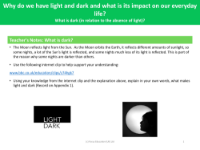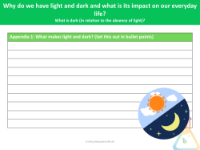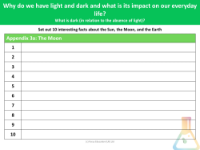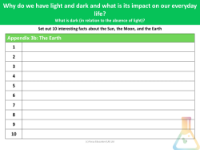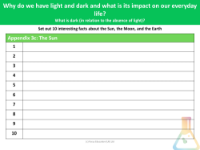What questions do you have about reflection?
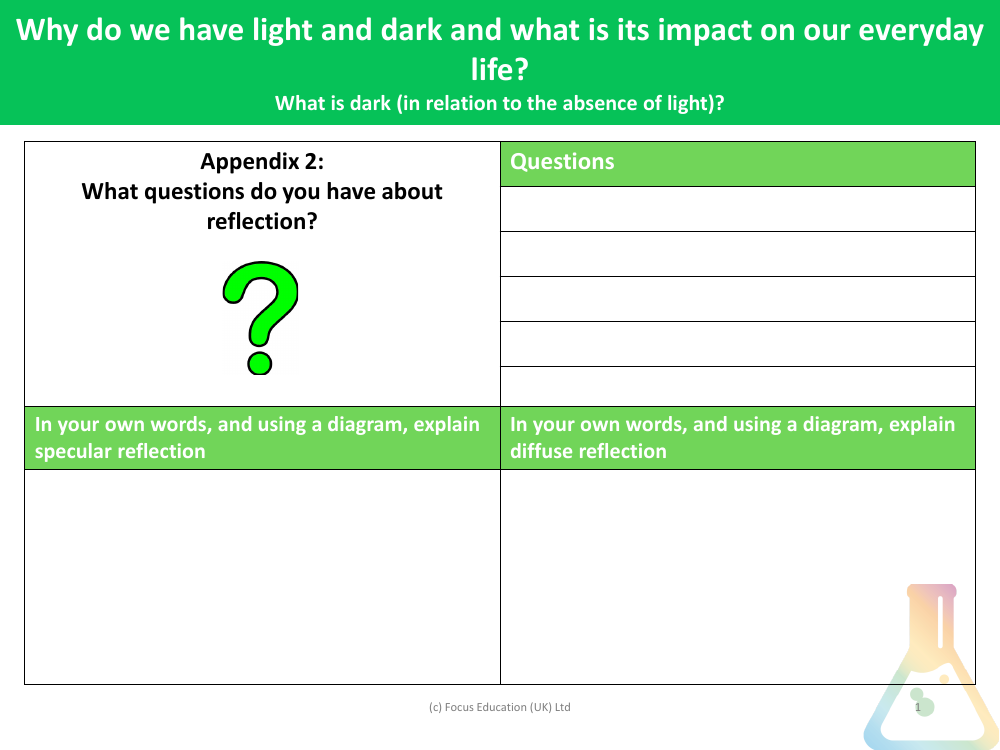
Science Resource Description
Understanding the concept of reflection is crucial in the study of light and how we perceive the world around us. Specular reflection refers to the way light bounces off a smooth surface, such as a mirror, where the angle of incidence equals the angle of reflection. This type of reflection results in a clear and defined image. To explain this concept, one could use a diagram showing parallel light rays striking a smooth surface and reflecting at equal angles. On the other hand, diffuse reflection occurs when light hits an irregular or rough surface, causing the light rays to scatter in many directions. This scattering effect means that no clear image is formed. A diagram illustrating this phenomenon would depict light rays striking an uneven surface with the reflected rays going off in different directions.
Light and dark play fundamental roles in our daily lives, influencing everything from our sleep cycles to how we perform visual tasks. In essence, darkness is the absence of light, which can be described as a condition where there is insufficient light to allow for human vision. Without light, our environment becomes obscured, impacting activities that require visual cues. The contrast between light and dark shapes our perception of the world, affects our mood, and even has biological effects, such as triggering the production of melatonin, the hormone responsible for regulating sleep. A deeper understanding of these concepts can provide insight into their significance in our everyday experiences.

